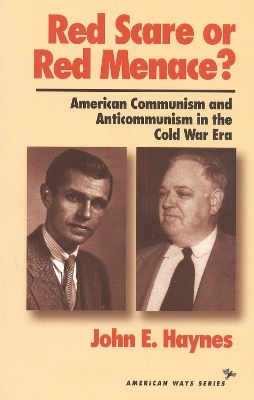American Ways
1 total work
As one of a handful of American scholars allowed to review documents in newly opened Soviet archives, John Haynes has used fresh evidence to shed new light on the United States' confrontation with communism at home. In a succinct survey, Haynes traces the buildup of the American Communist party (CPUSA) in the twenties and thirties, focuses on the heyday of popular anticommunism from 1945 to 1960, and follows the relative decline of anticommunism as a political issue in the sixties and seventies. Along the way he describes the chief episodes, figures, and institutions of cold war anticommunism, showing how earlier campaigns against domestic fascists and right-wingers provided most all of anti-communism's tactics and weapons. And he dissects the various anticommunist constituencies, analyzing their origins, motives, and activities. Haynes draws on new and incontestable evidence that the Soviet Union heavily subsidized the CPUSA from its earliest days; maintained an underground organization in Washington in the 1930s that reported to the CPUSA and in turn to Moscow on U.S. government activities; and placed CPUSA members in the wartime OSS and OWI, the government's major intelligence and propaganda agencies. He also confirms much of Elizabeth Bentley's 1940s accusations of Communist infiltrations. American Ways Series.
